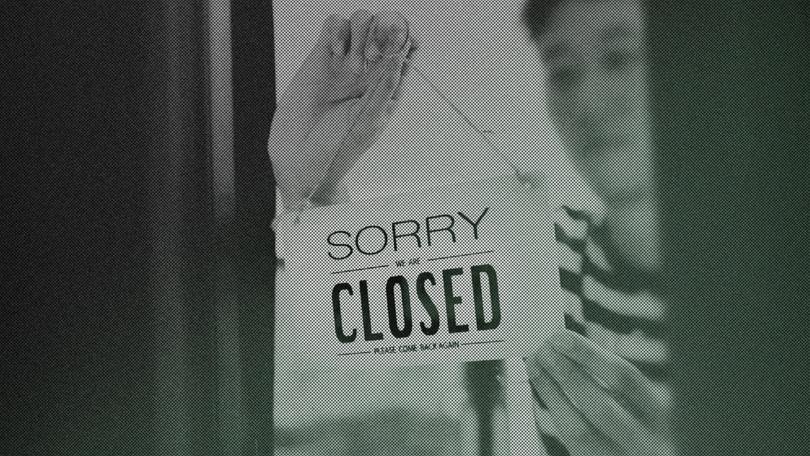Federal Budget 2025: Business groups lash ‘underwhelming’ Budget, scoff at Govt’s private sector revival boast
Business groups have lashed the Federal Budget, saying there is little indication of a private sector revival and next to nothing to stimulate one.

Business groups have lashed the Budget as “a kick in the knee”, “weird”, and “lacking in vision”, that “fails the test of setting up Australia and Australians for prosperity.”
On Budget night Treasurer Jim Chalmers described a “resilient” economy that will shift in composition from public sector led to private sector led, but business groups say there is little indication of a private sector revival and next to nothing to stimulate one.
The Budget banked on Treasury forecasts for a return to growth rates of 2.5 per cent, but Australian Industry Group chief executive Innes Willox warned a truer picture was revealed by comparing last year’s forecasts to this.
Sign up to The Nightly's newsletters.
Get the first look at the digital newspaper, curated daily stories and breaking headlines delivered to your inbox.
By continuing you agree to our Terms and Privacy Policy.“The Budget demonstrates the trough the economy is now in, with another significant downgrade in the growth forecast for the current financial year, down from 2 per cent in last year’s budget to 1.5 per cent in this budget,” Mr Willox said.
“Since December, forecasts for growth, inflation and business investment have been further downgraded while public demand will increase 5 per cent in the year ahead and 3.5 per cent the following year. There is no sign from these forecasts that the private sector is expanding or driving growth.”
Council of Small Business Organisations Australia chief executive Luke Achterstraat said the Government’s decision not to mention the Instant Asset Write-Off in the Budget left businesses in “limbo” and was a “kick in the knee” at a time when the sector was continuing to struggle with rising costs and weak consumer demand.
Mr Achterstraat said that amid record insolvencies, his members were facing a “make or break” six to 12 months, citing figures from the Small Business Ombudsman that up to half of enterprises were not breaking even.
“We see a lot of qualitative and quantitative feedback from our members about the crippling impact of higher costs,” he said.
“I think the cost of doing business crisis never really gets addressed as much as the cost of living crisis. For a small business owner who’s got their house mortgaged, they’re feeling the pinch of cost of living, but also feeling that in terms of the cost of doing business, so energy, rent, insurance, borrowing costs, and all the rest of it. I think sometimes this macroeconomic data you see in budgets doesn’t quite give you the full picture of what’s happening at what you might call a street level.”
“The apparent, discontinuation, or the unaccounting for of the Instant Asset Write Off, which has been a mainstay of small business policy for about 10 years, for us, is one of the worst decisions we’ve ever seen,” he said.
Mr Achterstraat’s comments coincided with the collapse of retailer Jeanswest for the second time in five years, leading to the closure of 90 stores and the loss of more than 600 jobs.
The company blamed poor consumer demand for the closure.

Westpac’s economics team, led by former Reserve Bank chief economist Luci Ellis, believes support for consumers including a reduction in the low income tax rate, increased Medicare levy threshold and extension of the energy rebate should ultimately help lift the prospect for retailers.
“Cost of living relief…will support those households that have struggled with the sharp increase in living costs over recent years and also boost incomes of sole traders. This in turn should provide some support for firmer household spending this year and in turn retailers,” Westpac said.
Andrew McKellar, chief executive of the Australian Chamber of Commerce and Industry, was less impressed calling it a “weird little budget”.
“This year’s budget really lacks some important vision and substance,” he said.
“I’m sure any tax cut handing back some of the proceeds of bracket creep is warranted, but honestly this is very superficial. It doesn’t go anywhere near restoring the extent of the impact of inflation on ordinary wage and salary earners.”
Mr McKellar said the failure to address the structural deficits and rising debt meant the country would continue to kick significant productivity reform down the road.
“You have to get expenditure back down to around 25 per cent of GDP to give yourself the flexibility to contemplate real tax reforms, including things like reducing the company tax rate. We are nowhere near the most competitive in the OECD. We’re falling off the pace there, and if you want to secure international investment for the future, that’s what you’ve got to do,” he said.
The Business Council of Australia, representing the country’s largest firms, described it as an “election budget”, which would receive an “election budget in reply, which would give a steer on Labor and the Coalition’s agenda in the next term of government.
But chief executive Bran Black said it did little to solve for Australia’s sinking productivity, that is at negative 1.2 per cent.
“We need genuine solutions to addressing the cost of living, to reducing the housing crisis, to how we achieve net zero, to what we can do to deliver the skills that we’re lacking, and, of course, providing for the healthcare that we’ve come to know and love, but which will become increasingly difficult as our population ages and our workforce gets smaller,” Mr Black said.

The BCA welcomed the funding of a $900m National Productivity Fund, announced last year, to incentivise state and territories to undertake economic reform, among other measures.
However the employer groups all criticised the Government’s policy to ban non-compete clauses for low and middle income workers, a reform that the Productivity Commission said could lift wages for affected workers by up to $2500 a year and potentially increase annual GDP by $5b.
“It’s not an incentive for small businesses, particularly, to invest in their staff if they know that they can walk out the door with that critical information,” Mr Black said.
Ben Thompson, head of leading human resources tech firm Employment Hero, said he was disappointed by AI’s absence in the Budget.
“Without stronger support for innovation and scale-up, Australia risks losing its next big tech unicorn to a global competitor that’s moving faster to back their startups with capital, policy, and infrastructure,” he said.
“The Future Made in Australia bill is nice in theory, but we still need smarter funding, better access to capital, and streamlined regulatory frameworks that don’t stifle growth. The Government should be backing innovation with the same intensity our startups are approaching it—with urgency and ambition. Until then, we risk falling behind on the global stage.”

